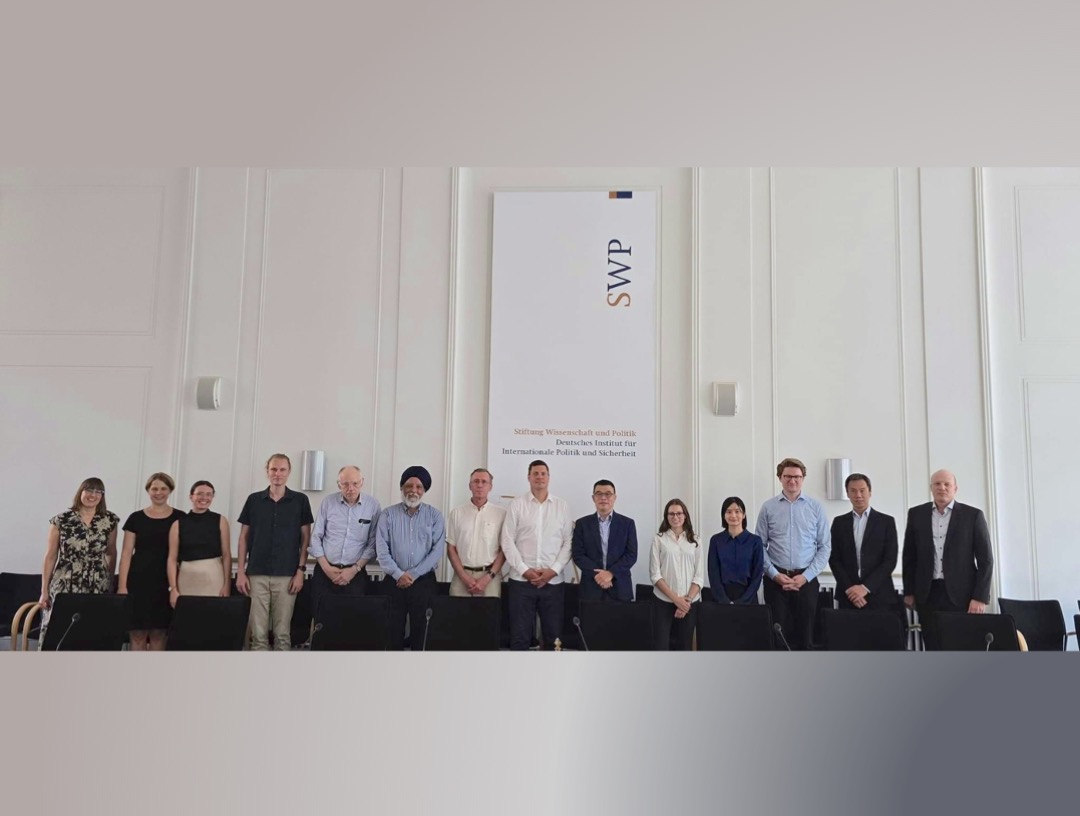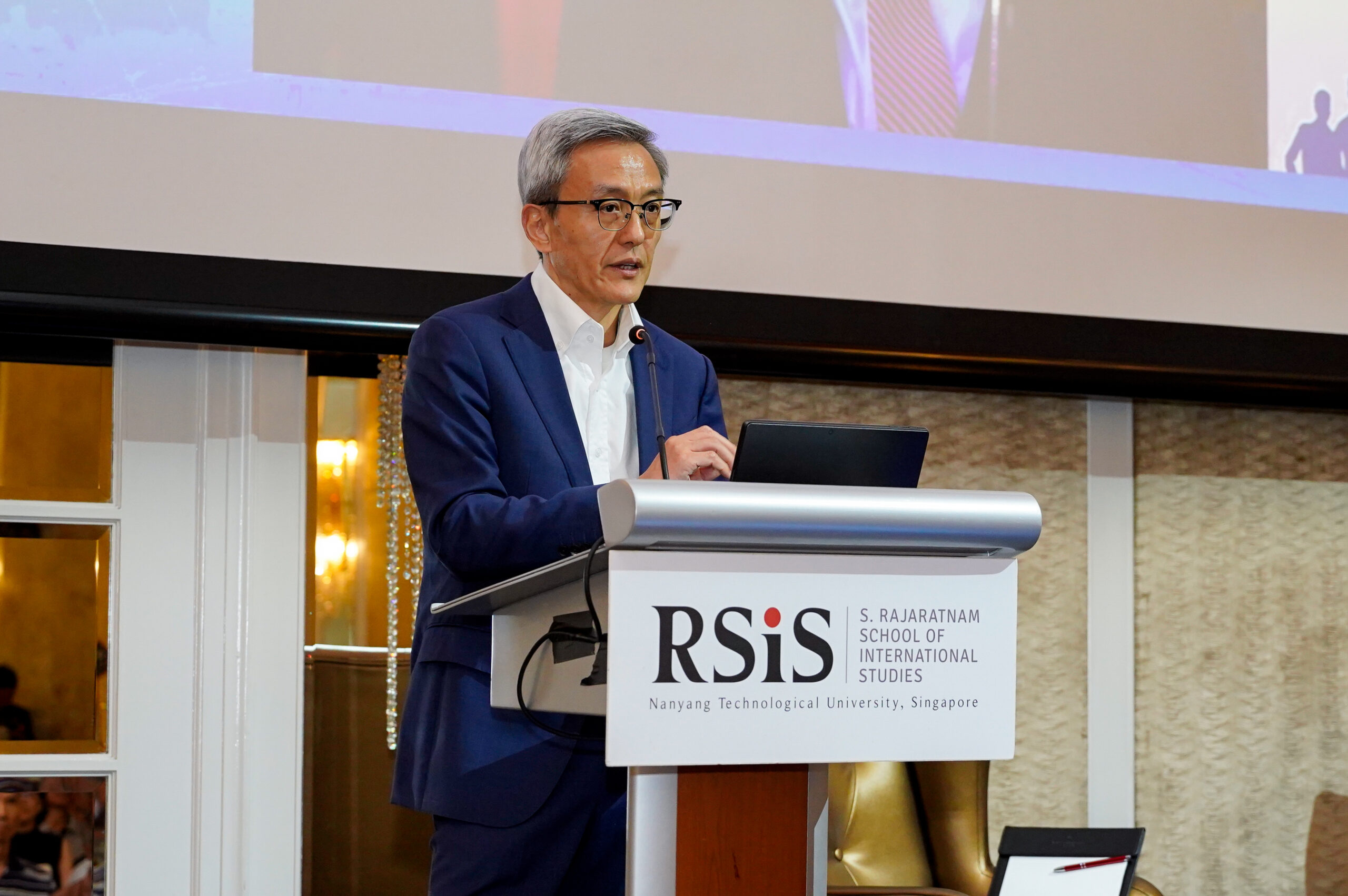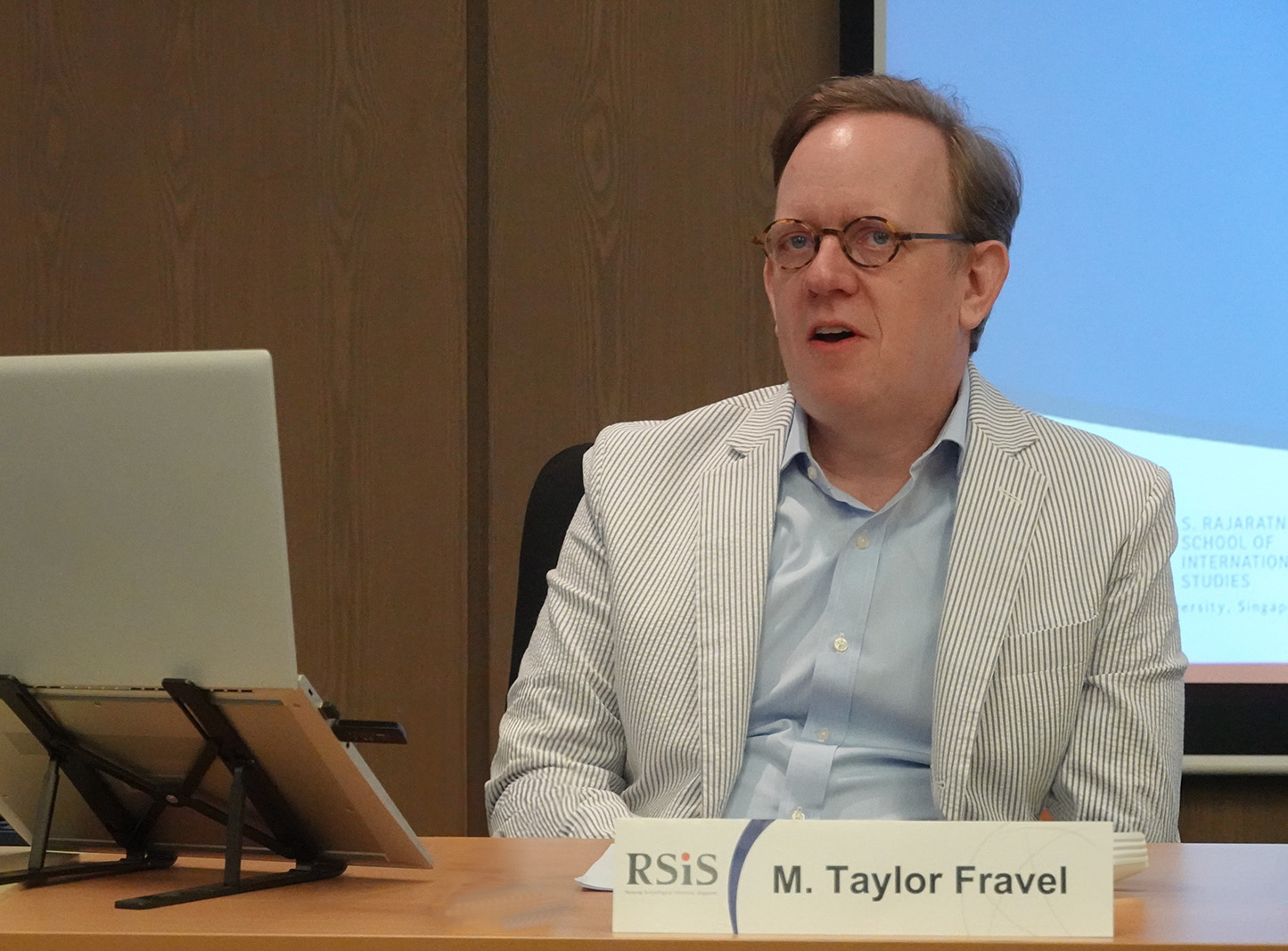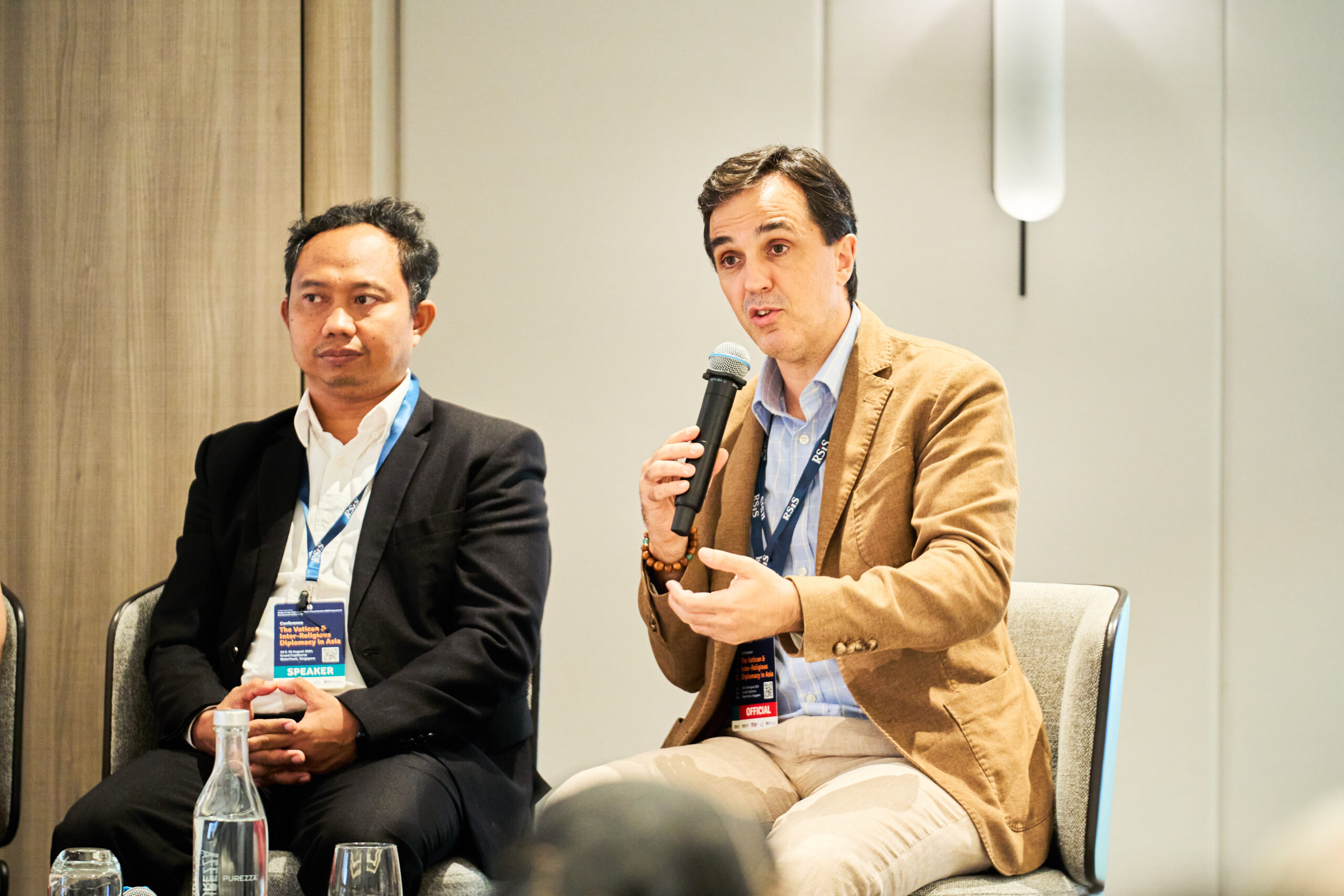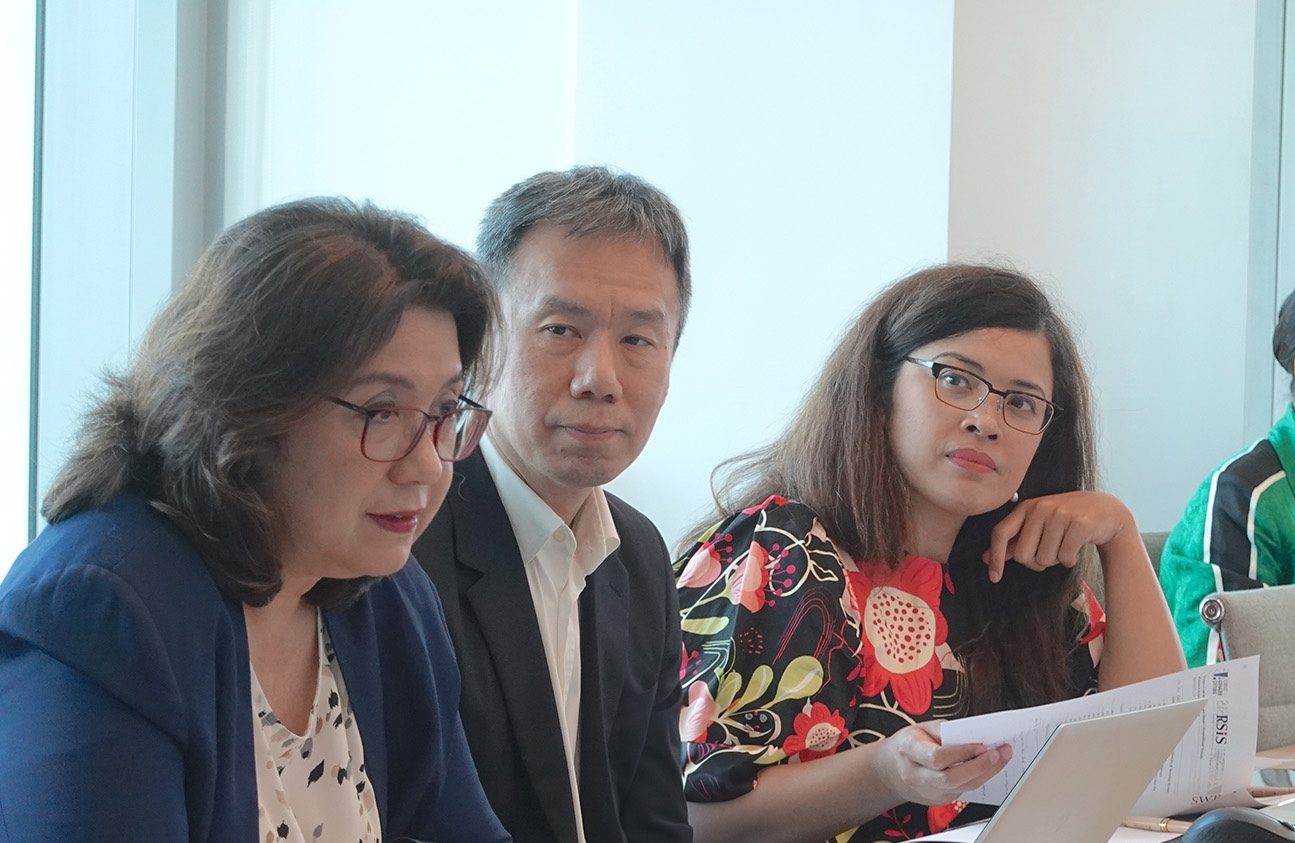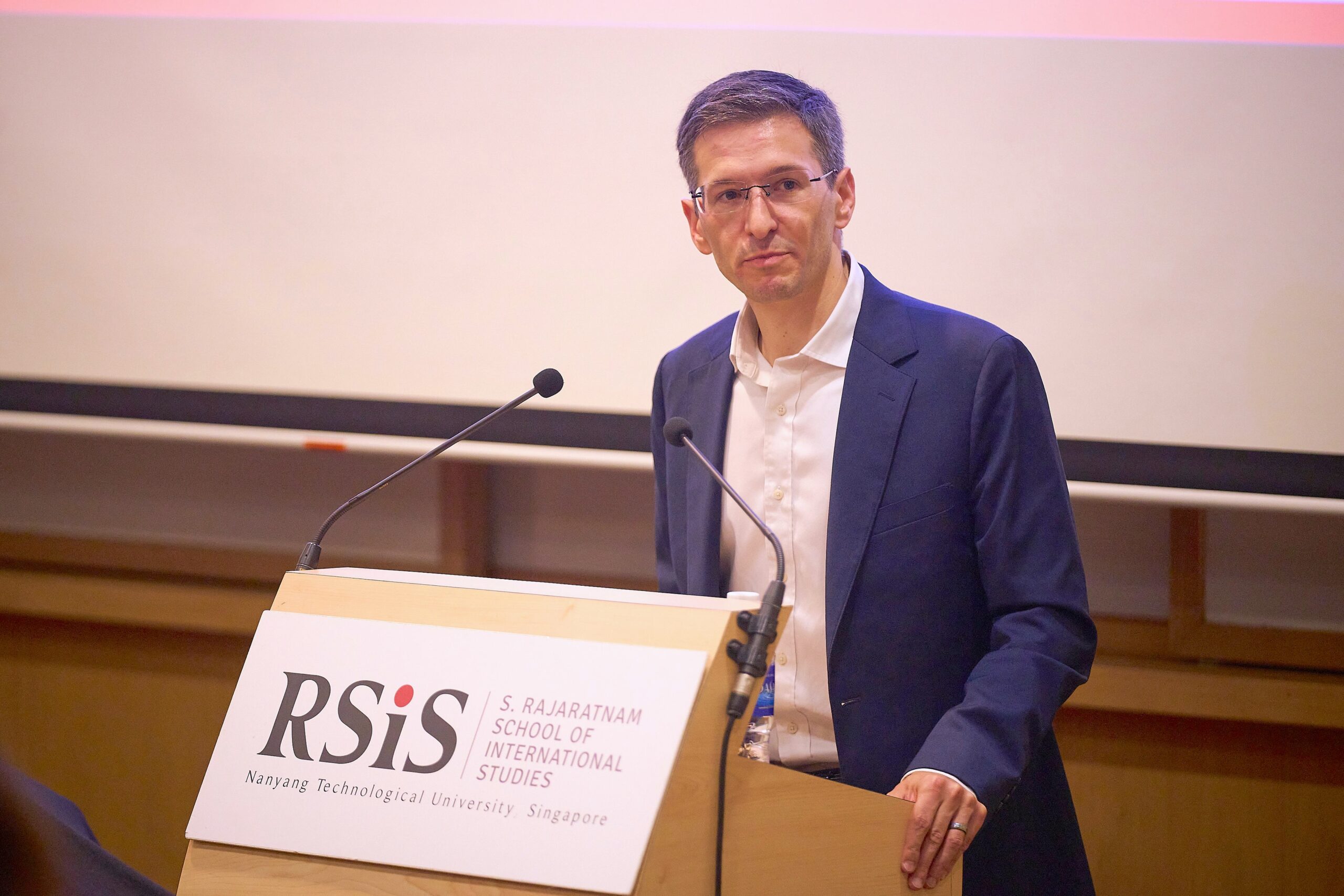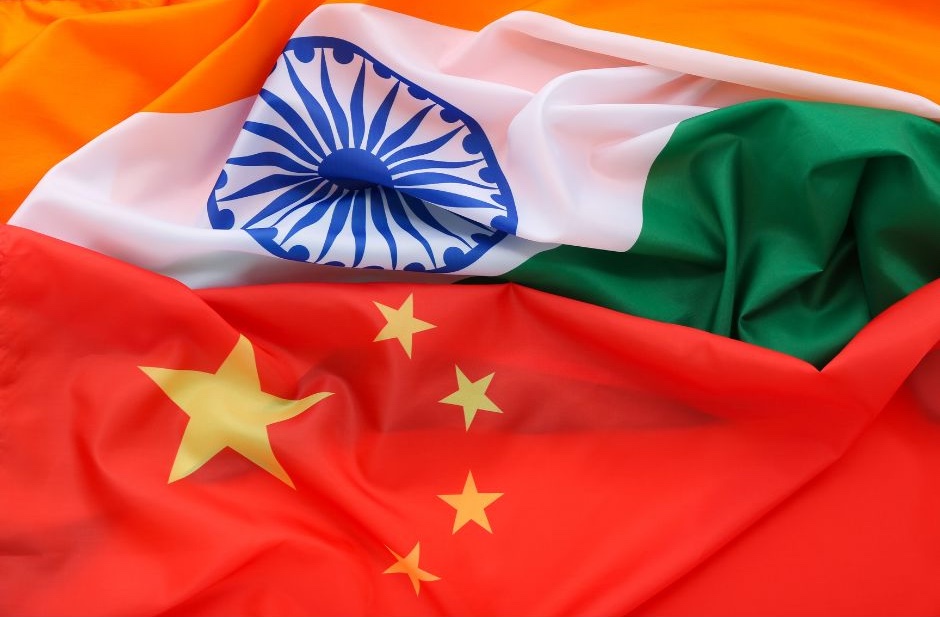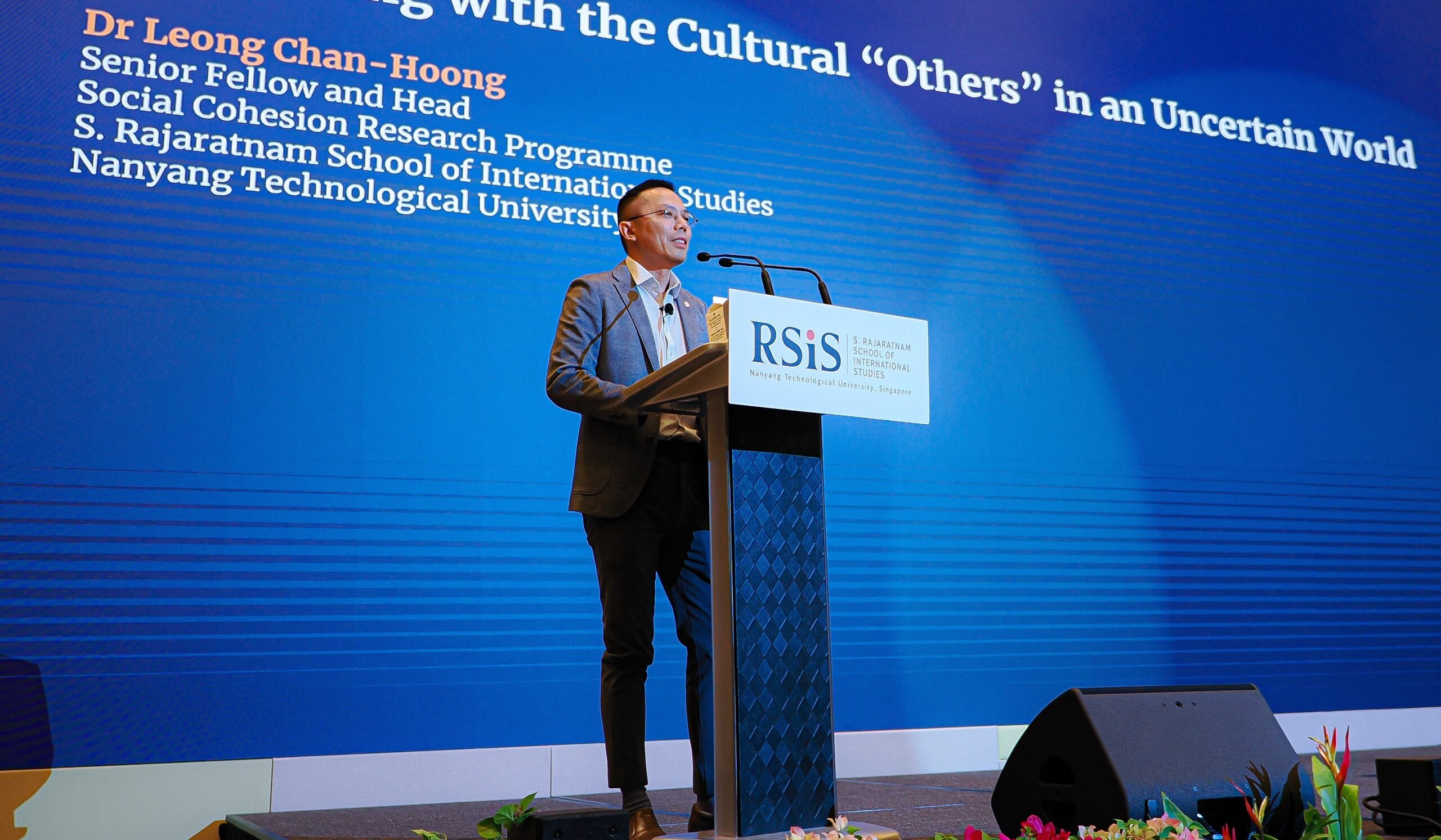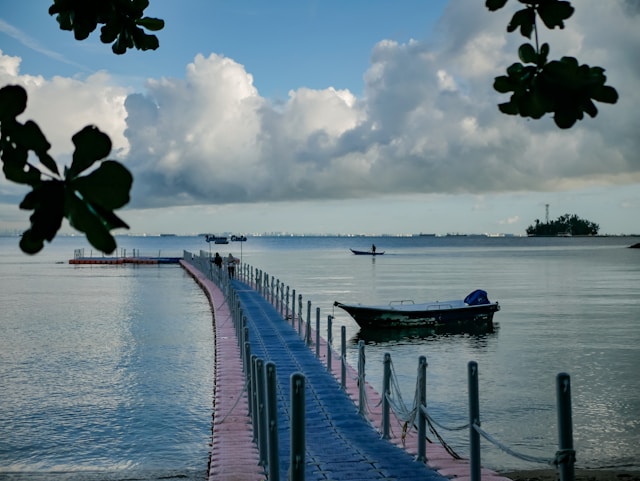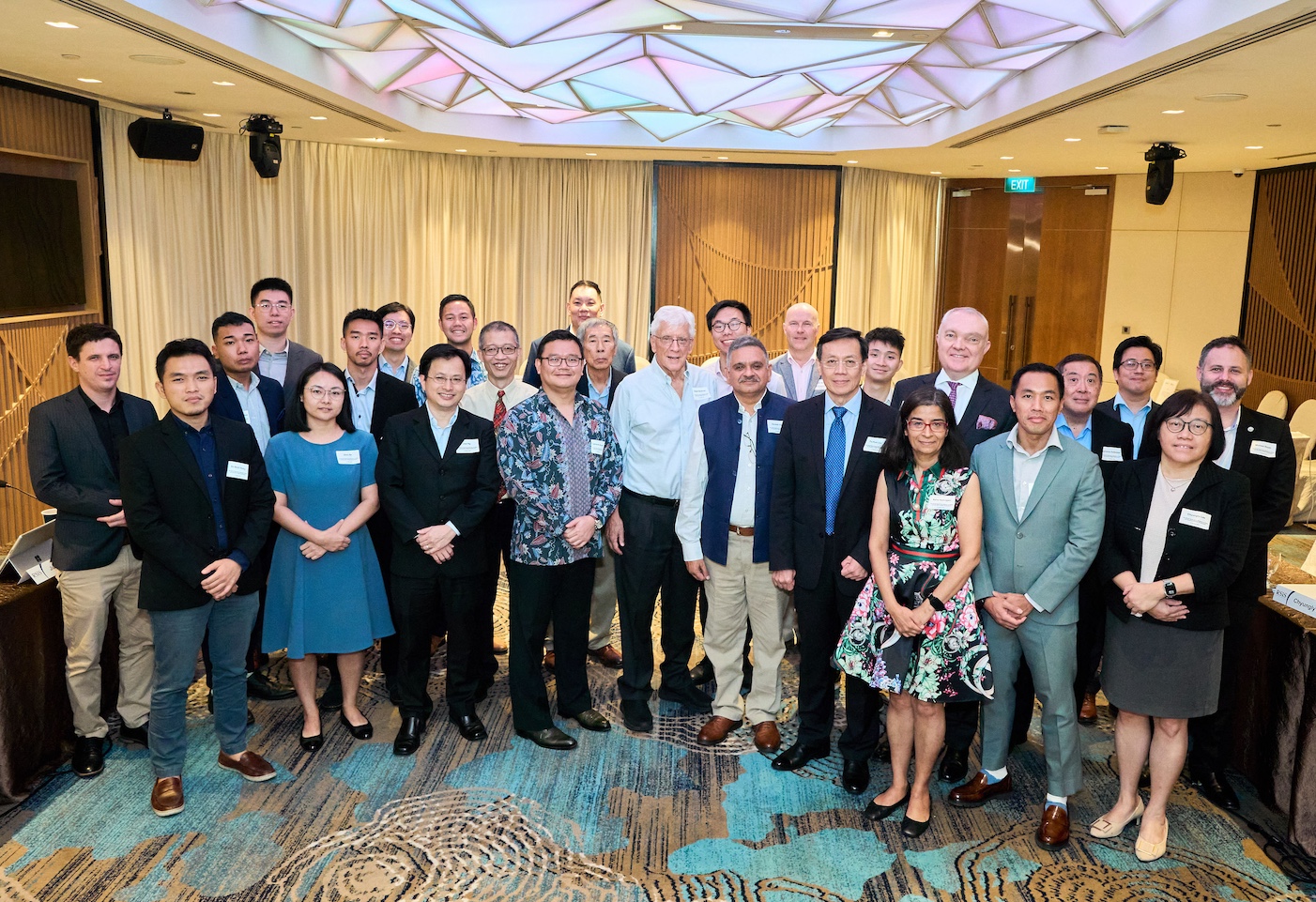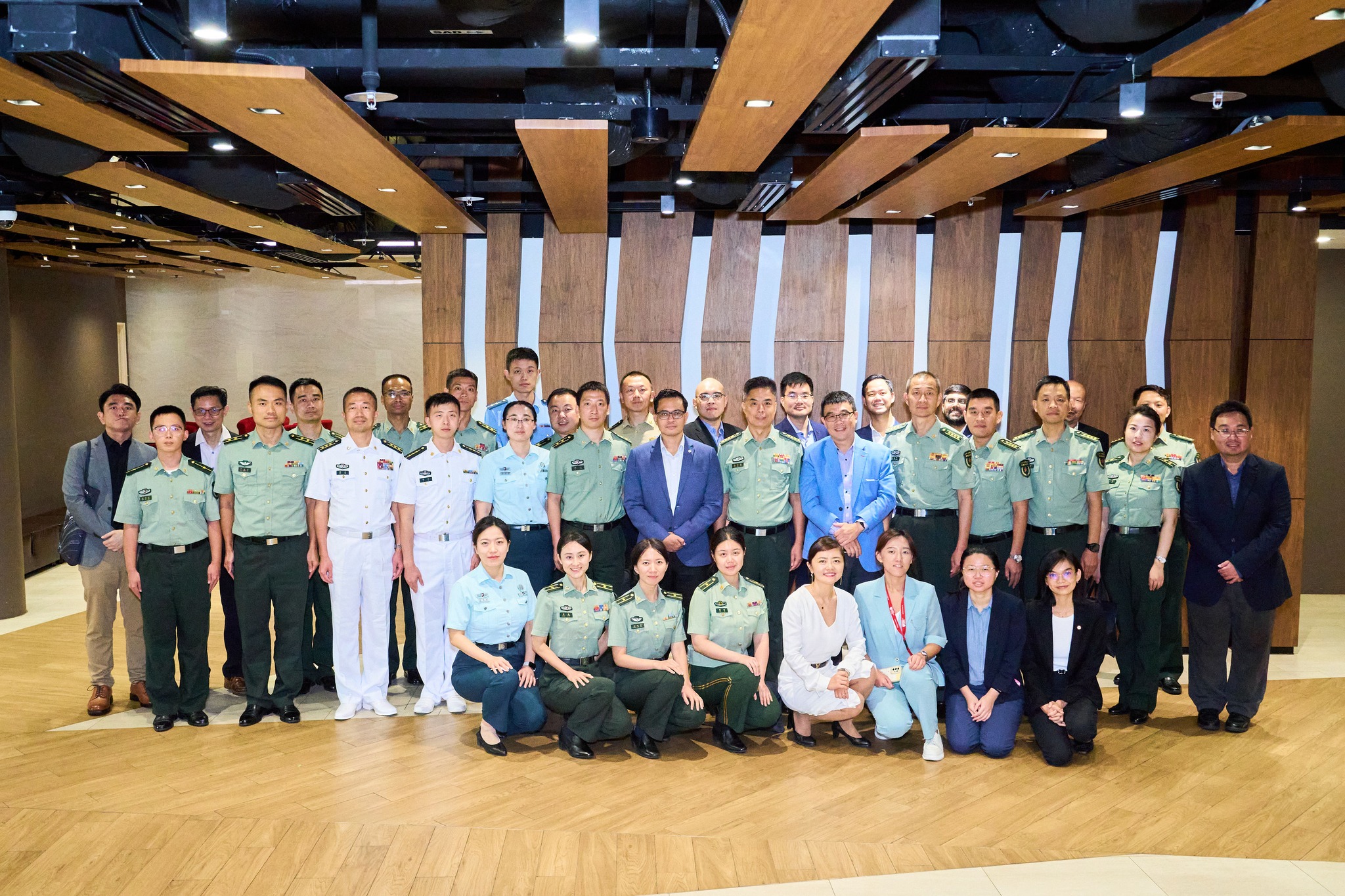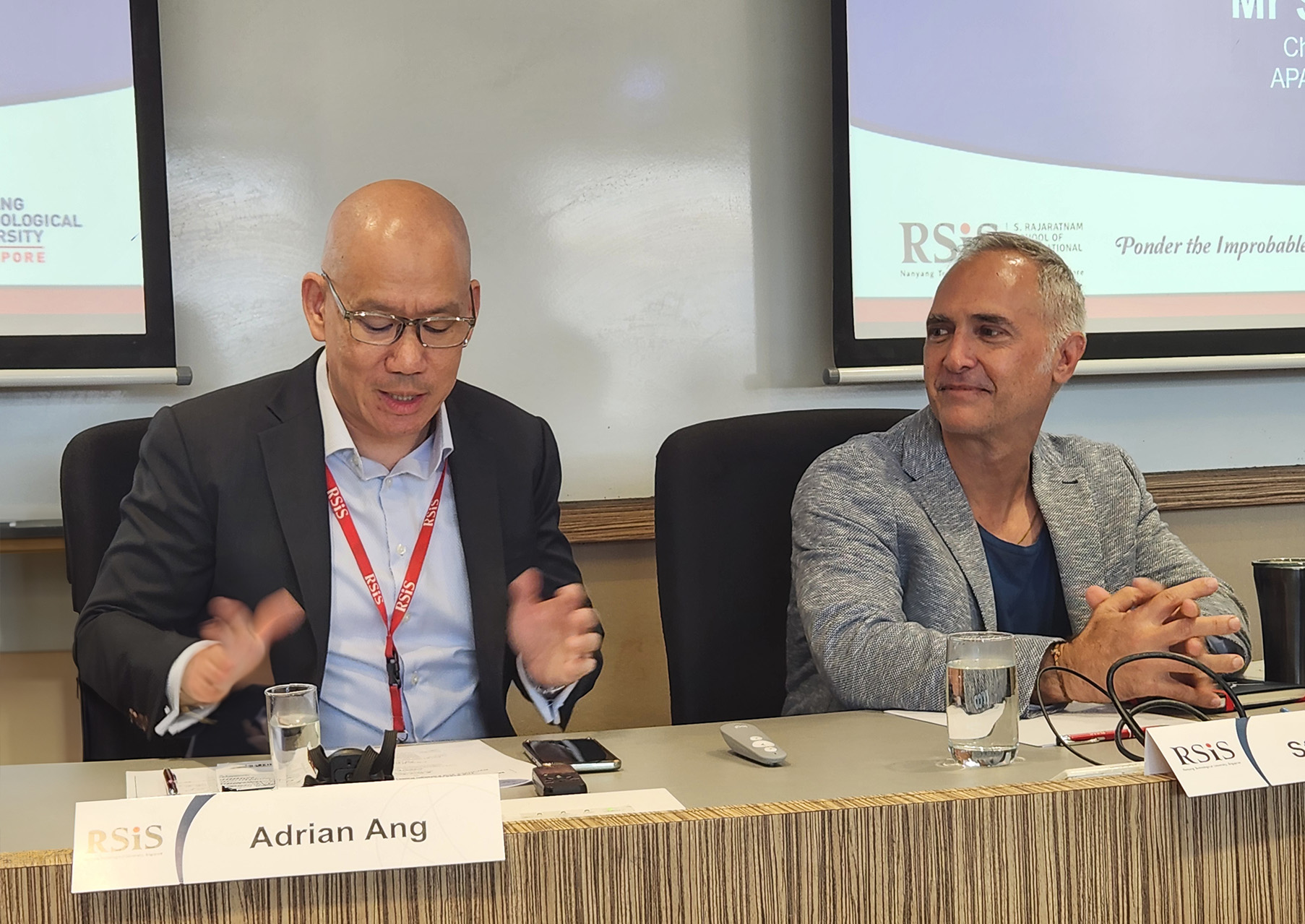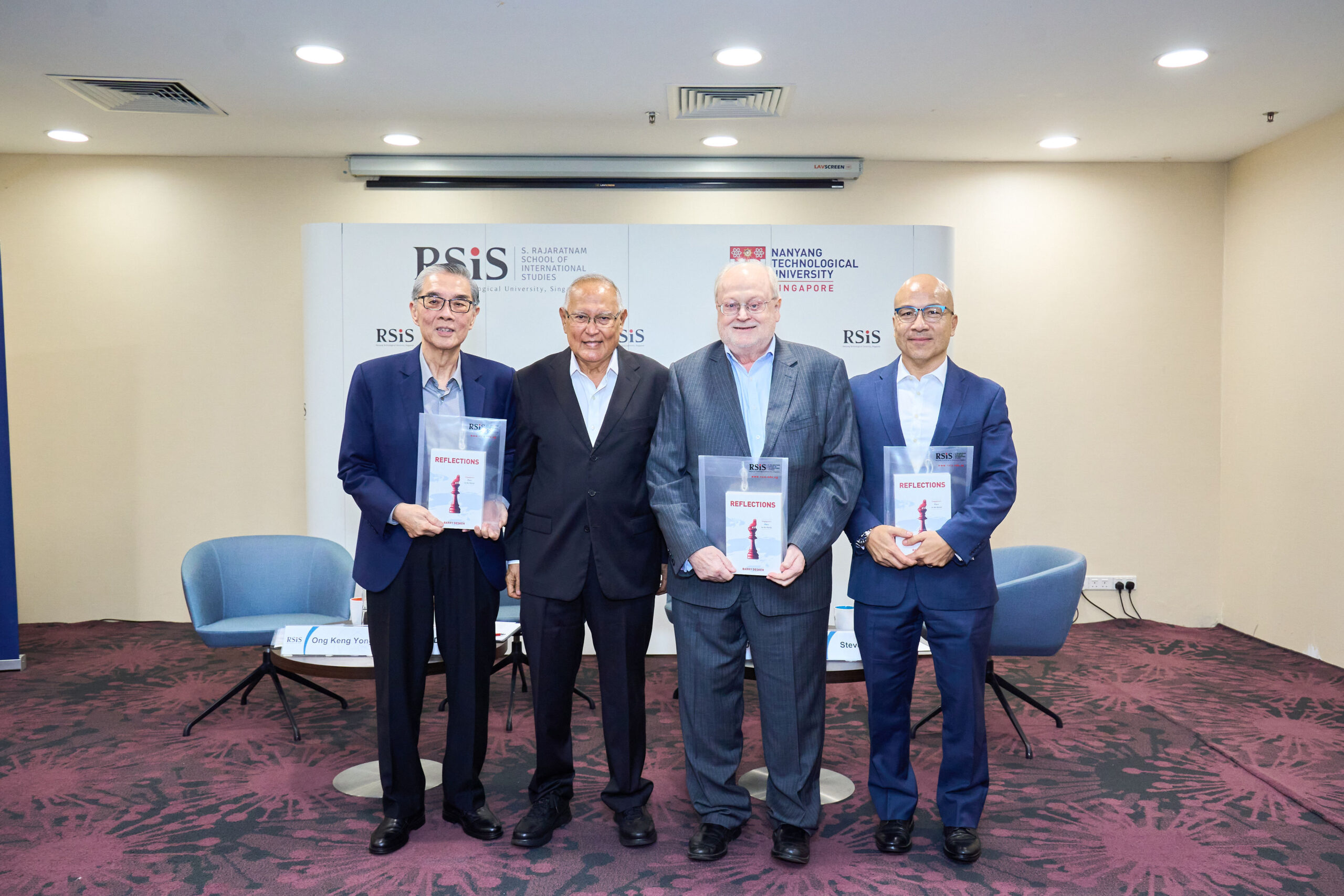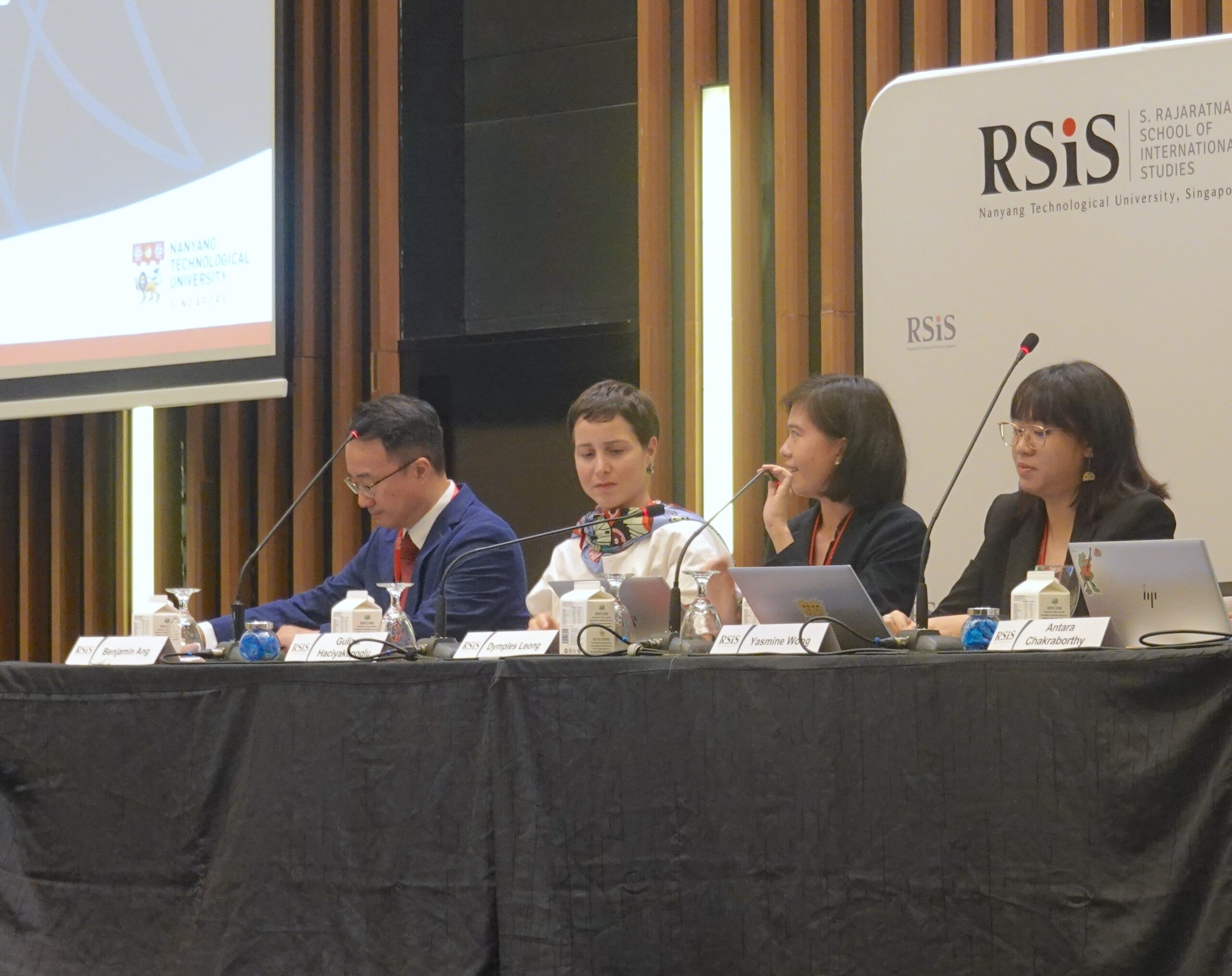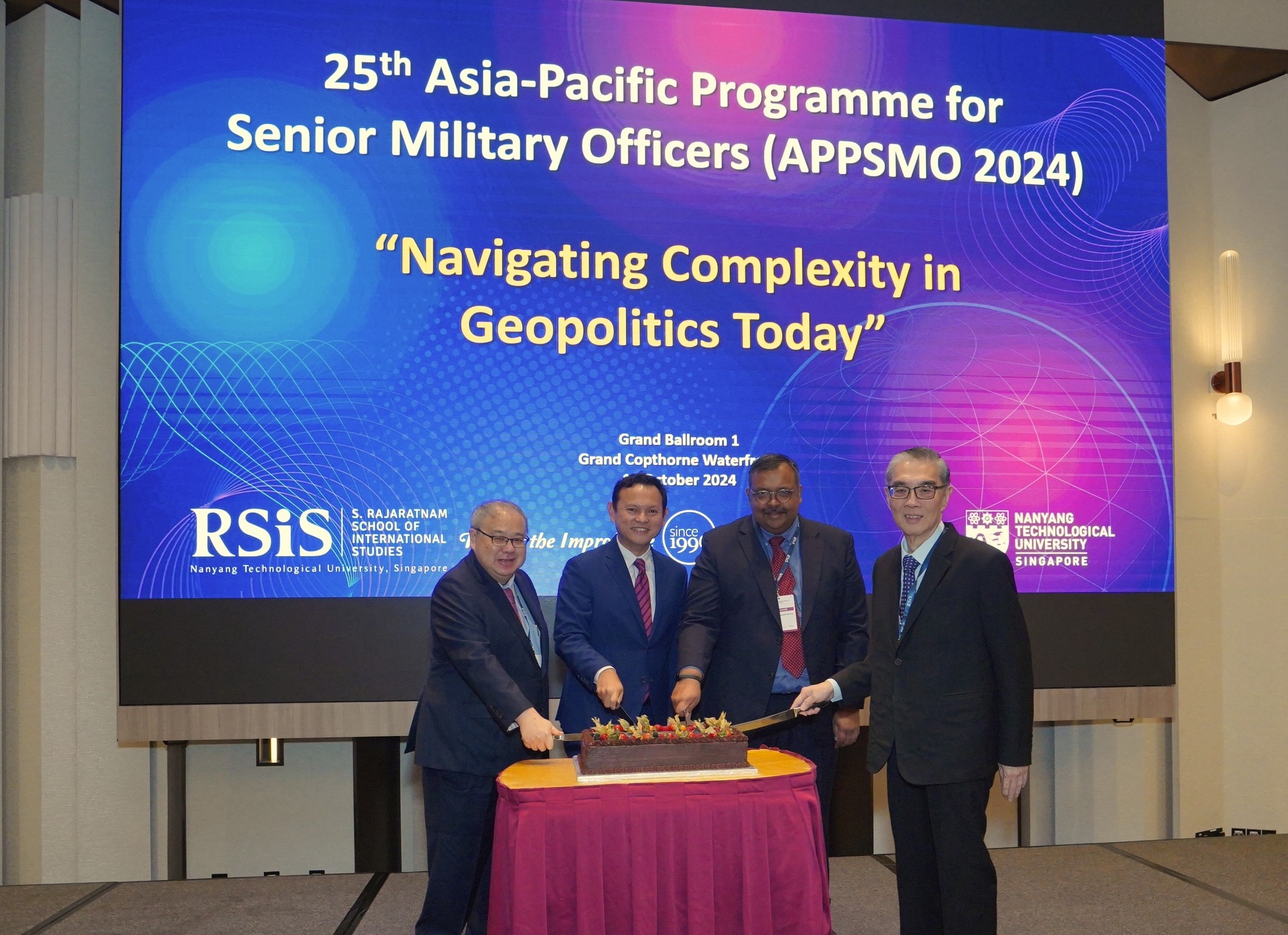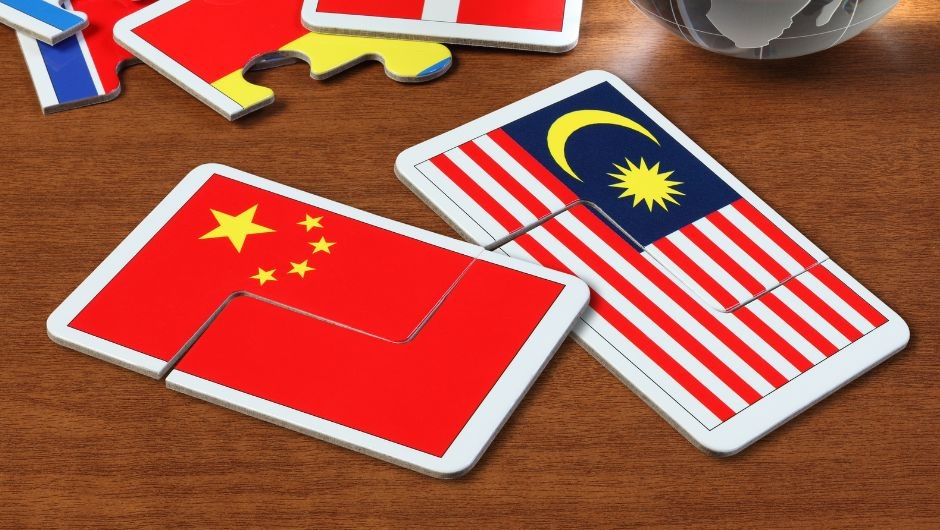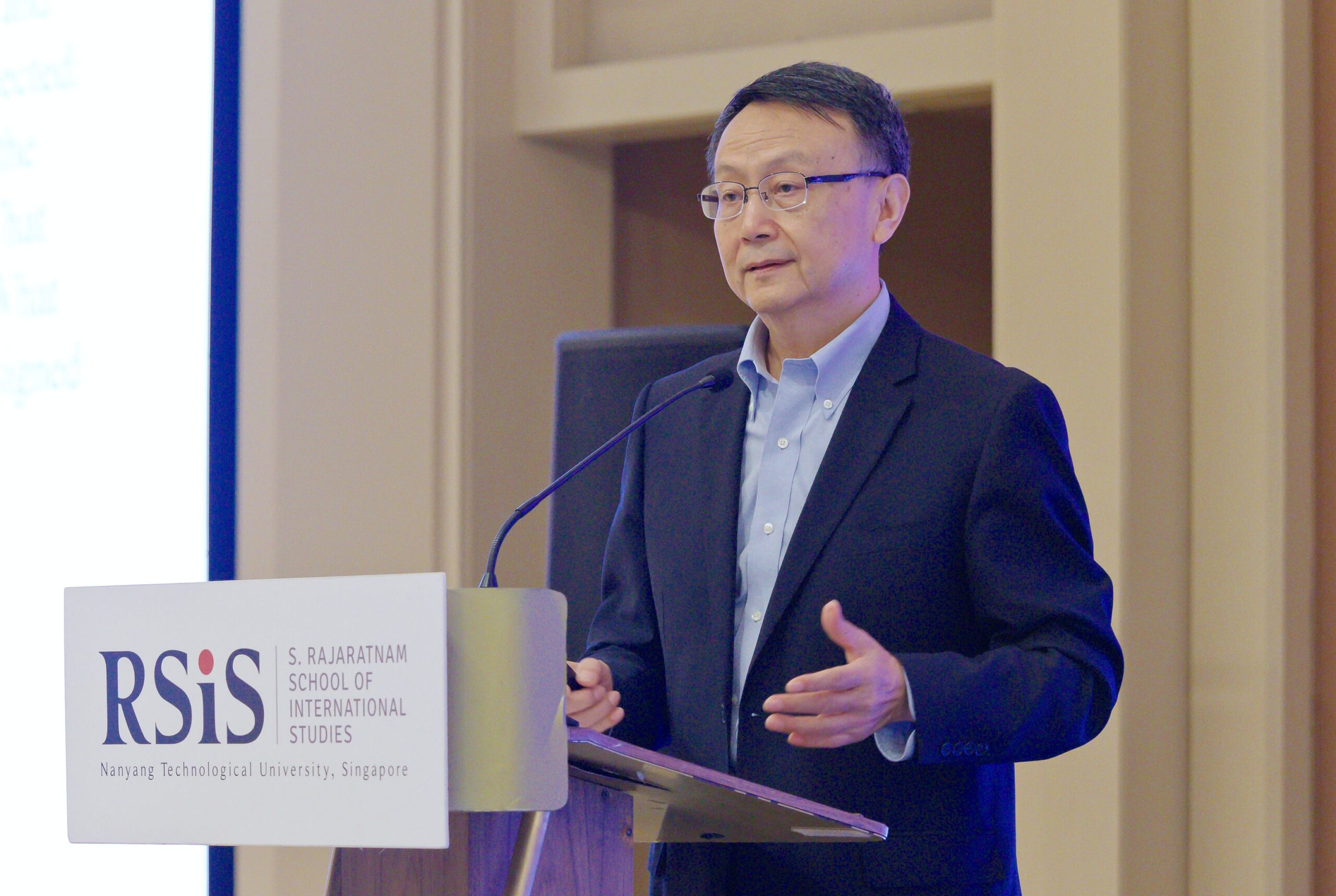
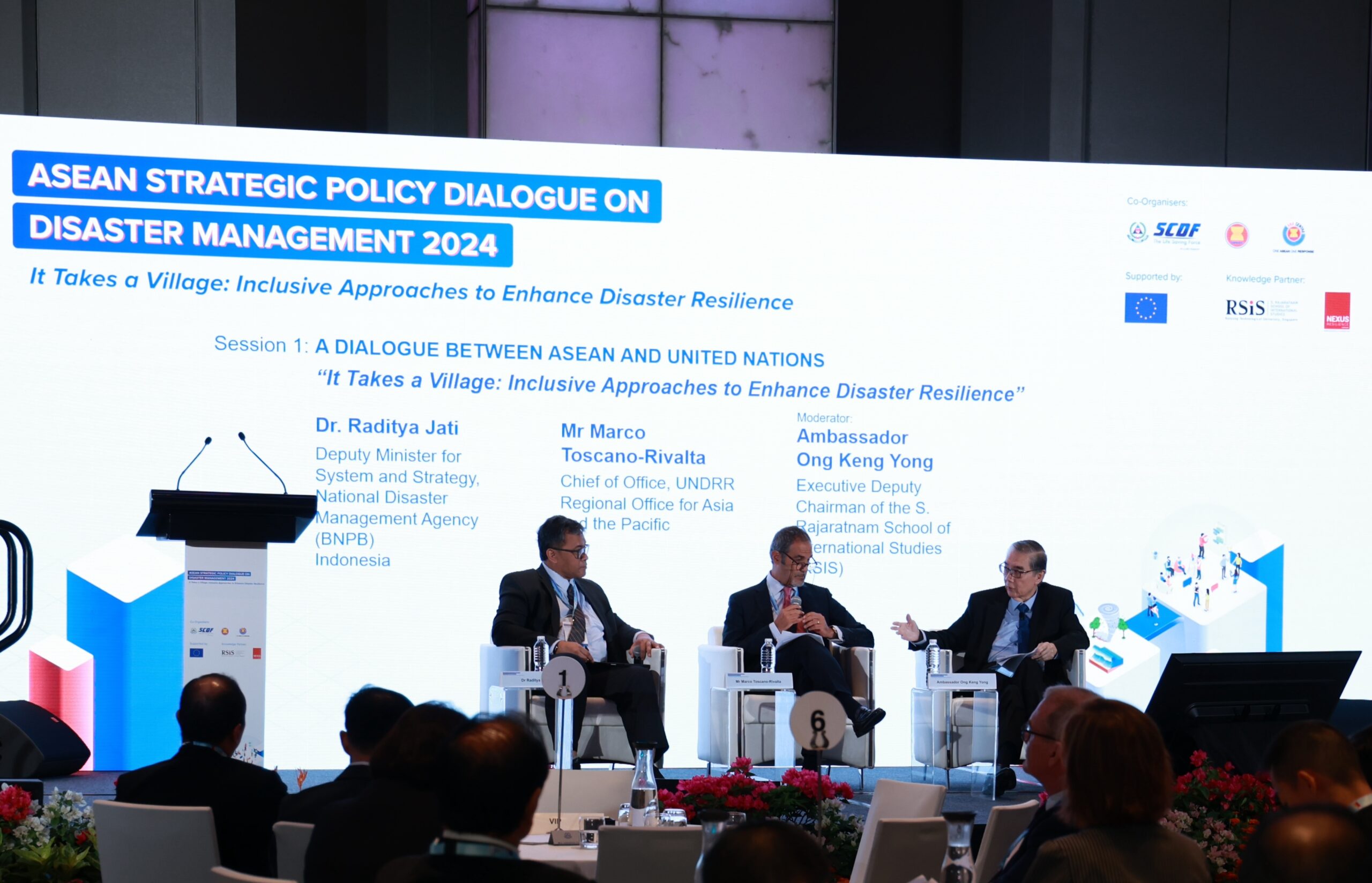
This year’s ASEAN Strategic Policy on Disaster Management (SPDDM) was held on 23 August 2024, under the title “It Takes a Village: Inclusive Approaches to Enhance Disaster Resilience”. The event was organised by the ASEAN Secretariat, the AHA Centre, and the Singapore Civil Defence Force (SCDF), under the purview of the ASEAN Committee on Disaster Management, with Nexus Resilience Group and RSIS as knowledge partners.
The SPDDM 2024 opened with welcome remarks by Mrs Josephine Teo, Minister for Digital Development and Information, Singapore; and H.E. Dato Seri Setia Awang Haji Ahmaddin bin Haji Abdul Rahman, Minister for Home Affairs, Brunei Darussalam, and Chair of ASEAN Ministerial Meeting on Disaster Management 2024. Additional remarks were given by H.E. Dr Kao Kim Hourn, Secretary-General of ASEAN, and H.E. Sujiro Seam, Ambassador of the European Union to ASEAN.
Moderated by Ambassador Ong Keng Yong, Executive Deputy Chairman of RSIS, the speakers for the Keynote Panel were Dr Raditya Jati, Deputy Minister for System and Strategy for the National Disaster Management Agency, Indonesia; and Mr Marco Toscano-Rivalta, Chief of Office, United Nations Office for Disaster Risk Reduction (Asia and the Pacific). The discussion focused on “A Dialogue between ASEAN and the UN” in which speakers discussed the important partnership between these organisations, and how they can work together to more effectively engage local communities in disaster management activities.
The next panel had a high-level panel discussion on “Local Insights for Global Impact: Zooming in on Community-Led Disaster Solutions”. Moderated by Mr Ling Young Ern, Deputy Commissioner (Operations & Resilience), SCDF; the speakers for this session were Dr Phichit Rattakul, President of Thai Network for Disaster Resilience; Ambassador Benjamin Jeyaraj William, Secretary-General of Singapore Red Cross; Mr Brendan Moon, AM, Coordinator-General of National Emergency Management Agency of Australia; and Ms Hang Thi Thanh Pham, Senior Resilience Officer, FAO Regional Office for Asia and the Pacific. Topics discussed during the panel included best practices when engaging local communities and methods of ensuring the success and longevity of community-led initiatives.
The dialogue continued with the thematic session on “From Risk to Resilience: Empowering Vulnerable Groups in Disaster Management” in which speakers discussed the concept of vulnerability and methods of overcoming challenges associated with addressing vulnerable groups. Moderated by Ms Adelina Kamal, Senior Advisor of Nexus Resilience group, the speakers for this panel were Bernardo Rafaelito R Alejandro IV, Deputy Administrator for Administration and Education at the Office of Civil Defence, Philippines; Ms Debora Dian Utami Nugraheni, Director of YAKKUM Emergency Units; as well as Dr Iffah Farhana, Vice Secretary-General of the U-INSPIRE Alliance. During the Q&A session, several topics including misconceptions about vulnerable groups, the importance of education, and ASEAN’s policies towards at-risk groups, were discussed.
This was followed by a second thematic session on “Utilising Technology to Achieve Sustainable Resilience” in which speakers discussed the developments made in technology and how they can be leveraged to enhance disaster management and community outreach. Moderated by Mr Said Faisal, CEO of Nexus Resilience Group, the speakers for this session were Dr Monique Kuglitsch, Innovation Manager at Fraunhofer HHI, and Dr Sanjay Drivastava, Chief of the Communications Technology and Disaster Risk Reduction Division (IDD) at UNESCAP. During the Q&A session, the speakers discussed issues relating to the growing prominence of Artificial Intelligence, misinformation, and the development of standards and best practices for handling new technologies.
The SPDDM 2024 concluded with closing remarks from Col. (ret) Muhammad Harrith Rashidi bin Haji Muahammad Jamin, Chair of the ASEAN Committee on Disaster Management and Director of the National Disaster Management Committee (NDMC), Brunei Darussalam. Overall, the SPDDM allowed stakeholders from various backgrounds to engage with one another and share their unique perspectives on disaster management. This enhanced the quality of discussion and paved the way for forward-looking ideas that can be used to strengthen disaster resilience in ASEAN.




